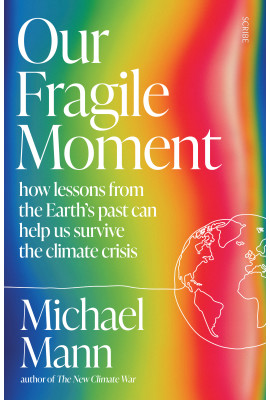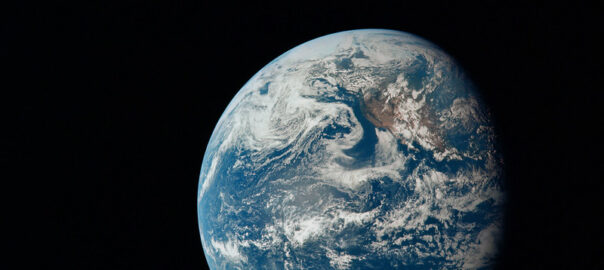Podcast: Play in new window | Download
Subscribe: Apple Podcasts | RSS
We talk with world-renowned climate scientist Michael Mann about climate, past, present and future. His book is Our Fragile Moment: How Lessons from Earth’s Past Can Help Us Survive the Climate Crisis.
The world is largely past climate denialism (except for the Republican Party and its fascist leader Donald Trump.) But what has replaced it is climate doomism — the notion that it’s just too late to do anything about climate disruption, so we might as well continue with business as usual.

But as Michael Mann tells us, it’s not too late to avert climate apocalypse — and there is resilience in the climate system, if we can just give it enough support to kick in.
Writers Voice— in depth conversation with writers of all genres, on the air since 2004.
Find us on Facebook at Writers Voice with Francesca Rheannon, on Instagram and Threads @WritersVoicePodcast or find us on X/Twitter @WritersVoice. Read transcripts at the Writer’s Voice Substack.
Key words: climate change, climate crisis, global warming, climate science, Michael Mann, podcast, book recommendations, author interview, book podcast, book show, writer’s voice, Francesca Rheannon
Lessons From the Past For Our Climate Future

In his book Our Fragile Moment, Mann explores what past climate shifts tell us about climate system resiliency — and what factors have undermined it in the past to lead to to the greatest mass extinctions — like when oxygen-creating bacteria depleted the atmosphere of planet-warming methane and caused the Earth to become encased in ice — Snowball Earth. But enough of life remained in tiny refuges that a whole new oxygen-breathing life became possible — and eventually led…to us.
Now we are like those planet-killing bacteria. The conditions that allowed humans to live on this earth are incredibly fragile, dependent on a climate system that is vastly complex, with influences that can drive us further away from a habitable planet and others that can help restore balance.
There’s Still Time For Climate Hope
In Our Fragile Moment, Michael Mann explains the complex science behind our climate system in a way that makes the subject easily understandable and compelling to read.
He explains why sea level rise is baked in for centuries, but, if we stop polluting our atmosphere with greenhouse gases, global temperatures will quickly stabilize. It’s up to us to make sure that stabilization happens as soon as possible, so we can keep our planet within habitable bounds.
About the Author
Michael Mann is the Presidential Distinguished Professor and Director of the Center for Science, Sustainability and the Media at the University of Pennsylvania. He’s the author of numerous books, including The New Climate War, which we spoke to him about in 2021.
Coming Up Next Week
We talk with Adam Shatz about his acclaimed biography of Frantz Fanon, The Rebel’s Clinic. Here’s a preview of that conversation:
Francesca: I think a lot of people who have a glancing knowledge of Fanon think that he was Algerian because he was so closely connected to the Algerian fight for independence, but he wasn’t. So tell us about Fanon’s background and how it shaped him.
Shatz: “So Fanon was not Algerian. He was in fact Martiniquan. He was born in Fort-de-France, the capital of Martiniquan, 1925, and was educated there as a young man. And then after fighting with the Free French Forces during the Second World War, he studied medicine and eventually psychiatry in Lyon.
He had seen Algerians. He had come across Algerians during the Second World War when he was briefly stationed there on the way to fight in France. And he certainly saw some horrible things in Algeria. He registered the intense poverty and the colonial division and so on.
But it was not until 1953, late 1953, that he returned to Algeria as a doctor to serve as the director of a psychiatric hospital in the city of Bleda, just outside of Algeria. And then of course, a year later, the independence struggle broke out, and Fanon was early to sympathize with the struggle and eventually to join it.”

